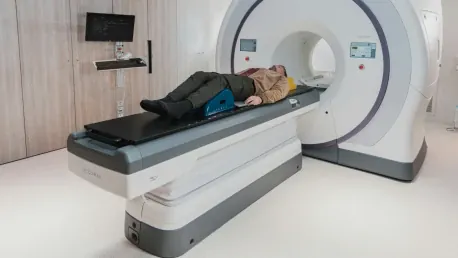At the Radiological Society of North America’s annual meeting in Chicago this week, GE HealthCare showcased a series of significant advancements poised to transform the medical imaging landscape. Serving as a pivotal platform for clinicians and tech professionals globally, the event highlighted cutting-edge innovations aimed at enhancing diagnostic precision, patient comfort, and operational efficiency within the radiology field.
Aurora: The Dual Head SPECT/CT Machine
Enhanced Diagnostic Accuracy
One of the standout announcements from GE HealthCare was the introduction of the new dual head SPECT/CT machine, named Aurora. Combining the functional imaging capabilities of single-photon emission computed tomography (SPECT) with the anatomical imaging proficiency of standard computed tomography (CT), Aurora is designed to revolutionize disease detection and management. This advanced technology is particularly adept at capturing both the functional and anatomical nuances of complex diseases such as cancer and cardiac disorders. By providing detailed, high-resolution images, it enables precise localization and early detection, thereby significantly improving patient outcomes.
In addition to its diagnostic accuracy, the Aurora SPECT/CT machine also promises to enhance patient comfort significantly. With its improved detector coverage and the ability to use lower radiation doses, the system not only ensures safety but also provides a more comfortable experience for patients undergoing scans. Currently approved for sale in the European Union, Aurora is pending approval from the FDA, which, if granted, will make this innovative technology widely available to hospitals and clinics across the United States.
Advancements in Mammography: Pristina Via
Addressing the Technologist Shortage
Another notable announcement from GE HealthCare was the launch of Pristina Via, a new version of the Pristina mammography system. This upgraded system directly addresses the widespread shortage of radiologic technologists by automating several critical tasks and streamlining workflows. Features such as zero-click image acquisition and rapid image processing are designed based on feedback from mammography technologists, ensuring that the system meets the practical needs of users in clinical environments. These enhancements allow for accelerated comparison of previous exams, reducing the time and effort required for accurate diagnostics.
Existing Pristina devices can be seamlessly upgraded to Pristina Via, thereby extending the benefits of these technological advancements to a broader range of healthcare facilities. This upgrade potential enhances the efficiency of the mammography process, making it faster and more reliable. By integrating such features, GE HealthCare demonstrates a commitment to improving operational workflows and addressing staffing shortages, ultimately aiming to provide better care for patients.
Strategic Acquisition of Nihon Medi-Physics
Expanding Operations in Radiopharmaceuticals
Further emphasizing its commitment to advancing medical imaging, GE HealthCare announced the acquisition of Nihon Medi-Physics by purchasing the remaining 50% stake from Sumitomo Chemical. Nihon Medi-Physics is a renowned supplier of radiopharmaceuticals used in various medical imaging and therapeutic applications, particularly within cardiology, neurology, and oncology. This acquisition signals a strategic move for GE HealthCare, given Japan’s substantial pharmaceutical market and Nihon Medi-Physics’ significant infrastructure of cyclotrons.
The acquisition not only expands GE HealthCare’s footprint in the Asian market but also enhances its capabilities in producing high-quality radiopharmaceuticals. These compounds are crucial for accurate imaging and effective treatment of various conditions. By integrating Nihon Medi-Physics into its portfolio, GE HealthCare can leverage advanced technologies and expertise to develop innovative solutions that meet the evolving demands of global healthcare.
AI-Powered Imaging: Sonic DL for 3D MRI Scans
Accelerating MRI Scans with AI
At the annual meeting of the Radiological Society of North America (RSNA) in Chicago this week, GE HealthCare unveiled several noteworthy advancements set to reshape the field of medical imaging. This gathering, which serves as a crucial hub for clinicians and technology experts worldwide, spotlighted a range of innovative solutions designed to improve diagnostic accuracy, patient comfort, and operational efficiency in radiology.
GE HealthCare’s new technologies promise to elevate the standard of medical imaging. Among the highlights are enhancements in imaging techniques that allow for clearer, more precise diagnoses, thus enabling healthcare providers to detect medical conditions earlier and more accurately. Additionally, these advancements are aimed at improving patient experience by reducing the discomfort often associated with medical imaging procedures. Faster and more efficient imaging processes also mean shorter wait times for patients and increased throughput for medical facilities.
Overall, the event showcased how GE HealthCare’s innovations are positioning the company at the forefront of the radiology industry, emphasizing their commitment to advancing medical technology and improving both patient care and clinical operations.









